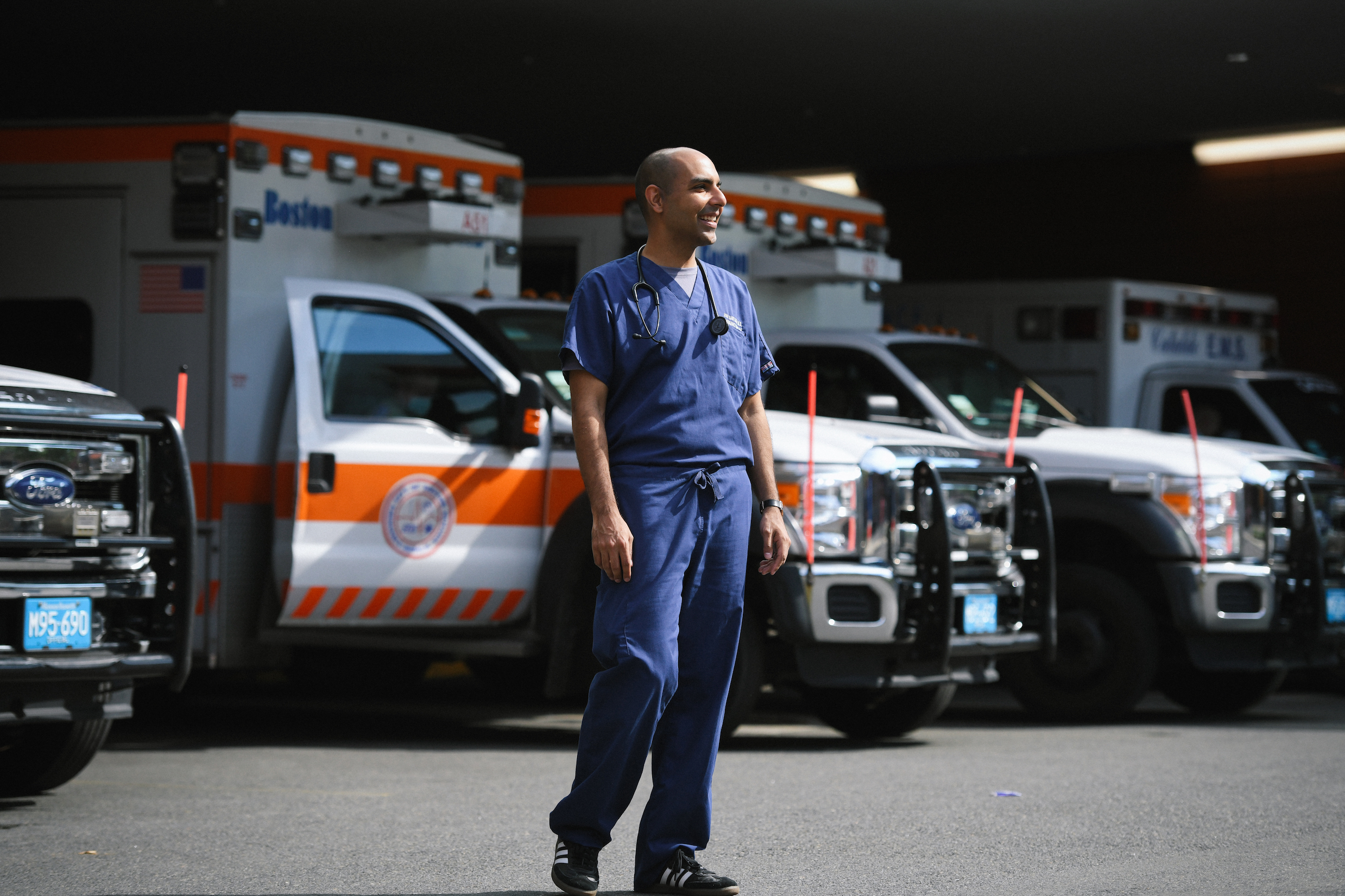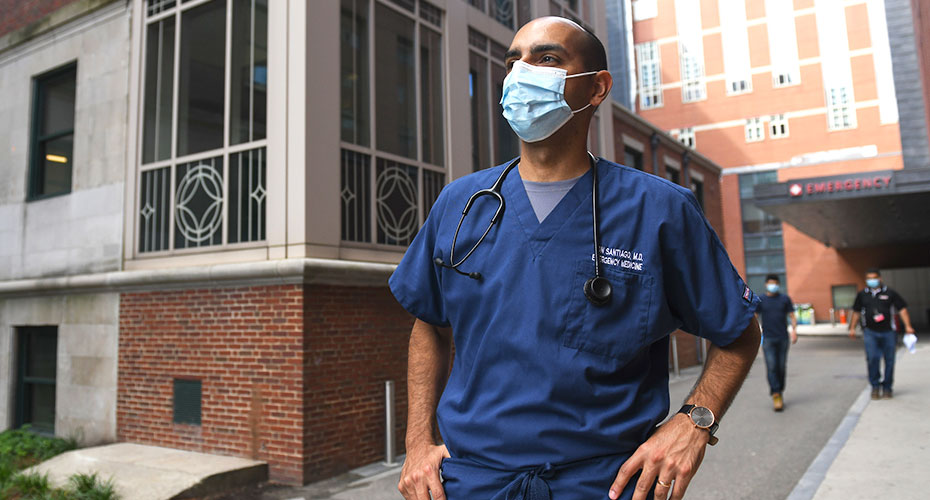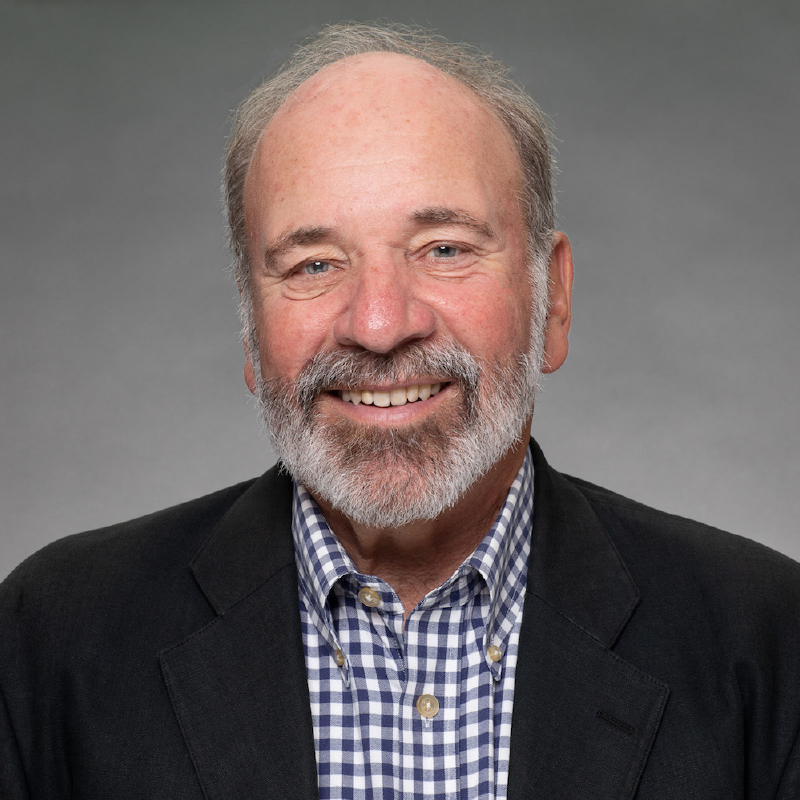Jan 16, 2021
A healer welcomes a new weapon in pandemic battle
One day recently, after returning from an overseas Army Reserve deployment, Dr. Jon Santiago resumed his position on the front lines of the COVID pandemic in the emergency room at Boston Medical Center.
He prepared for a renewed battle against the novel coronavirus by receiving the first of two vaccinations.
“I feel very honored,” he said.
A terrifying fight
Santiago has spent a good part of this past year toiling on the outermost edge of life and death, battling a virus that continues to send a river of humanity into the ER at Boston Medical Center.
He has intubated, resuscitated and medicated, all in an effort to keep COVID-19 from taking one more life. The work is filled with joy and heartache, bounded by science too often grim.
In the spring, Santiago recalls, he and his colleagues in the ER found themselves valiantly working to try and stabilize a floodtide of patients “so very, very sick, with oxygen levels we’d never seen before, levels that were incompatible with life, to be frank with you.”
Santiago remembers seeing patients and colleagues who were frankly “scared out of their wits. The science wasn’t there,” he recalled. “The treatments weren’t there, we were flying by the seat of our pants, and it was chilling in that regard.”
“Now, we’re 10 months into this, doctors, nurses, health care workers…we’re tired and with the rising hospitalizations, I don’t know how much longer we can put up with this,” he said with a pronounced weariness in his voice. “The difference now with the second surge is that there’s no decrease in the emergency room volume.
“And on top of that, people are tired of not being able to live their normal lives,” he added, “tired of having to quarantine, tired of not being able to go out to a restaurant, or a theater. It’s a different feeling, not just as I walk the streets and talk with friends and colleagues on Beacon Hill, but also in the hospital.”

A battle on two fronts
Dr. Santiago and Army Capt. Santiago is also state Rep. Santiago of Boston’s 9th Suffolk District. The doctor who has spent most of this pandemic year battling COVID in the emergency room at night habitually spends his days journeying to Beacon Hill and fighting for the South End neighborhood that surrounds the ER at Boston Medical, the same neighborhood where Santiago was raised in subsidized housing after his Puerto Rican family relocated when he was a baby.
His mission now, as vaccinations slowly become more accessible, is addressing the issue of fear within communities of color about receiving that shot in the arm. As both a member of -- and practitioner to -- this city’s minority community, Jon Santiago understands the reticence all too well.
“If anyone studies medicine, people will quickly read about and understand that even within medicine there exists systemic racism,” Santiago said. “From the Tuskegee experiment to the sterilizing of Puerto Rican women, Black and brown communities and others don’t always feel safe and secure when they come to hospitals.”
Allaying those concerns, he said, will require a serious effort by both state and community leaders, particularly those within medicine, to explain both the risks and benefits involved in taking the vaccine, and to make clear to these communities, in a culturally competent and sensitive way, that rigorous science has proven this safeguard against the coronavirus is both safe and effective.
“I have friends here in Boston who are going out and doing that very work, important work,” Santiago said. “Let’s remember that these communities, not only are they more interested in getting the vaccination, they’re more impacted by the virus. They are three times more likely to be infected, twice as likely to pass away.
It’s incumbent upon us as leaders, particularly myself -- not just as an elected official – but as a physician and as a person of color, to really be an example and to educate and inform and to work with whoever wants to join in that effort to vaccinate those communities that are most at risk.
Hear more from other frontline providers who share their gratitude and hope as they receive the new shots

The stakes are high
“At this time, it’s difficult to know someone who hasn’t been affected by the coronavirus,” Santiago said. “If they haven’t been individually affected by the virus per se, then maybe they’ve lost a job or a business. Millions have lost jobs, millions more have been infected and people have died."
As the country hits a record 4,000 daily COVID deaths and the vaccine rollout is slower than expected, it's crucial to continue to wear a mask and adhere to physical distancing and other public health measures.
“Until we reach community immunity, and we estimate that to mean having 75% to 85% of the community vaccinated, we’re still far away from what we can think of as normal," he said.
Amid the battle, now more than ever, Dr. Santiago is grateful for the things that matter most. “With so much suffering in the world today, I’m just happy to have good health, a roof over my head and two jobs that I love.”
PHOTOS BY FAITH NINIVAGGI

